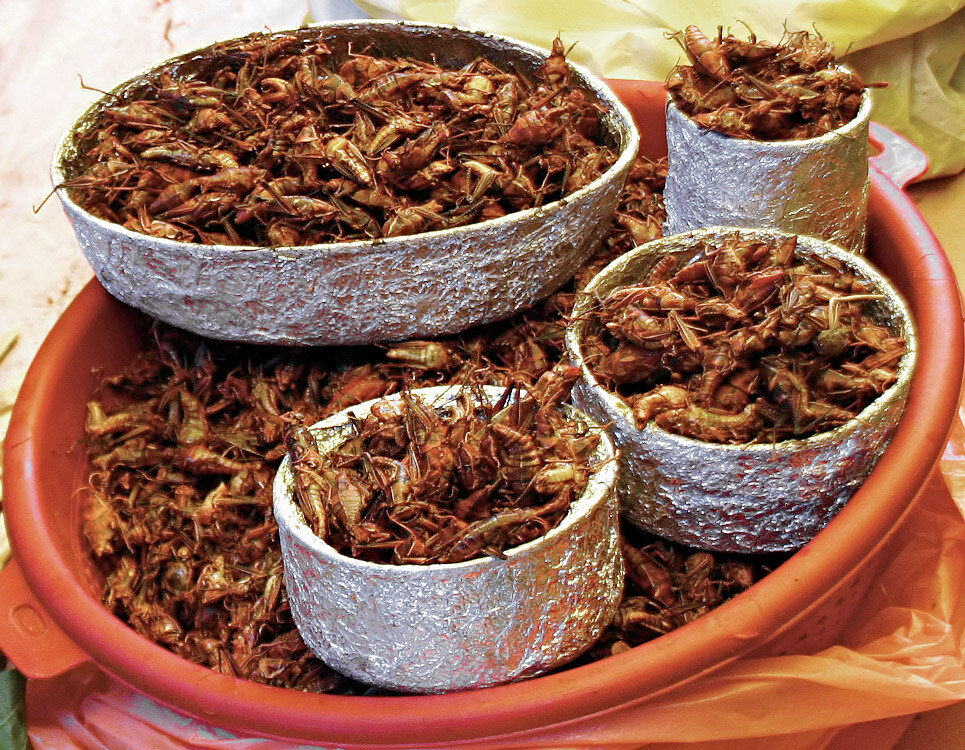The Insect Revolution: Insects as Protein for the Future

Environmental stresses, climate change, population growth, and the rising costs associated with producing animal protein all contribute to a continued growth in food insecurity worldwide. Other nations have found one solution to this rising problem with something we come across every day: insects. It's estimated that 2 billion people eat insects as part of their diets (Source: foodtank, foodtank.com); however, here in the United States there remains a stigma about eating insects as food.
Eating insects may seem far out of the realm of normal or desirable but there are health and environmental benefits to doing so. In a case of quality versus quantity, insects contain high-quality protein, vitamins, minerals, and amino acids in small portions. On the environmental side, the production of insects as food releases fewer greenhouse gases than current livestock production and insects can be fed on organic waste streams.
Insects are healthy for us; they provide food at lower environmental costs and they're sustainable, as they are in abundance throughout our planet. Many companies around the world are now developing delicious insect products. Here is a list of five organizations in the United States leading the way in insect food.
Big Cricket Farms:
It all started in 2006 when Big Cricket Farms founder, Kevin Bachhuber, took a trip to Thailand, where raising, eating, and using insect products are far more mainstream. After a particularly delicious encounter involving a few beers and some bowls of dry roasted crickets and bamboo worms, Kevin was sold on the idea. Big Cricket Farms is the first American insect farm to have obtained a food-grade certification from the United States Food and Drug Administration and the Ohio Department of Agriculture.
Exo:
In January 2013, the founders of Exo ordered 2000 crickets to their dorm room. Armed with just google research, a vague recipe, a blender and an oven, Exo was born. Now, Exo is based in New York City, selling protein and lunch bars made from crickets.
Hopper Foods:
The mission of Hopper Foods is to help normalise entomophagy (eating insects) by creating great tasting, nutritious and healthy products that people will want to eat every day. From Austin, Texas, Hopper Foods makes and sells gluten-free granola made from cricket flour.
Six Foods:
Based in San Francisco, Six Foods was started by three women who are passionate about the healthy and sustainable benefits of insects. Named after insects’ six legs, Six Foods provides the product Chirps, which are cricket chips.
Tiny Farms:
Tiny Farms is an edible insect consulting firm based out of Silicon Valley. They use data to design efficient insect farms.
As we continue to feel the growing effects of climate change worldwide, we'll only need more innovative solutions, like using insects for food. Read about how some of our Newman’s Own Foundation Challenge participants are creating solutions to food industry issues. Visit Net Impact’s Newman’s Own Foundation page for more information.




